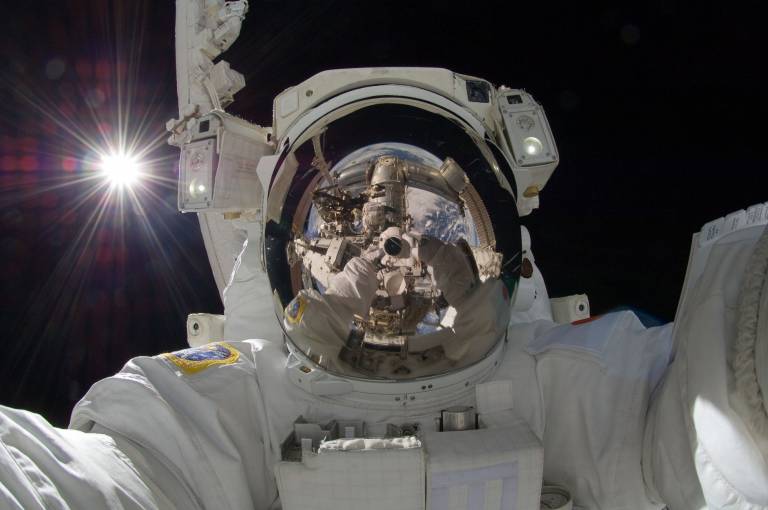Space Health and Disaster Risk Reduction symposium
01 September 2021, 8:30 am–5:00 pm

This symposium is an exploration of the interrelations between space health, disaster risk reduction and other related topics. The aim is to establish a consensus on the provision of healthcare by an interdisciplinary healthcare practitioner during a deep space mission to another planetary body, and how this practice can inform remote health systems on Earth.
This event is free.
Event Information
Open to
- All
Availability
- Yes
Cost
- Free
Organiser
-
UCL Space Health Risks Research Group
The symposium is led by UCL Institute for Risk and Disaster Reduction, Space Health Risks Research Group. During the symposium, participants will join a variety of breakout rooms to discuss the symposium topic based on the breakout room theme. Each breakout room will be led by representatives of the following specialities:
- Space medicine and space health
- Global health and public health
- Planetary healthcare systems
- Anthropology
- Disaster sciences.
The symposium will take place online and tickets are available for free. The symposium has been funded by UCL Grand Challenges, following a successful grant application by PhD students Myles Harris (UCL Institute for Risk and Disaster Reduction) and Paddy Edgley (UCL Anthropology).
About the Speaker
Dr Robert Thirsk
Canadian Space Agency, ex-astronaut
Dr. Robert (Bob) Thirsk was born and raised in western Canada. He received degrees in Mechanical Engineering from the University of Calgary and from the Massachusetts Institute of Technology (MIT). Bob also holds a Doctorate of Medicine from McGill University and a Master of Business Administration from the MIT Sloan School of Management.
Bob was selected as a member of the Canadian Space Agency’s astronaut corps in 1983. During a 28-year career, Bob received training on space shuttle and International Space Station (ISS) systems and developed skills in spacewalking, robotic operations and Russian language. He served as crew commander for two space mission simulations: the seven-day CAPSULS mission in 1994, and the 11-day NEEMO 7 undersea mission in 2004.
The keynote speach will take place towards the end of the symposium.
 Close
Close

